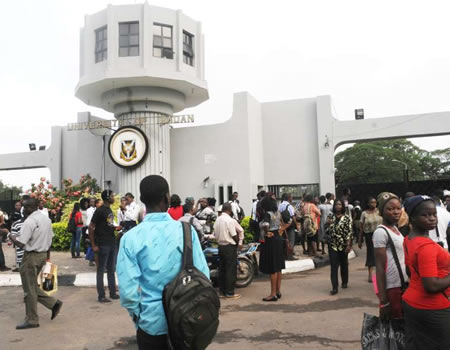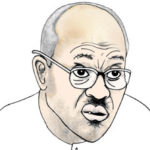Between 1945 and 1962, UK had thought the decolonisation movement in Africa would benefit more with education as driver of political and economic affairs. It set up Asquith and Elliot Commissions which provided templates for higher education and upgrading of existing post secondary institutions in the British Empire. As a result of this, Yaba Higher College which had been in existence since 1934 training indigenous workforce was upgraded and relocated to Ibadan city which became Nigeria’s first University College. At the beginning, UI quality was ensured through alliance with institutions in the colonial homeland of Britain. This period provided the University College, Ibadan with managerial and curricular alliance in consonance with academic tradition, quality and character comparable with what obtained in Britain. The foundation was solidly laid with many UK lecturers and professors teaching at Ibadan, while the UK regulated the curricula. Her reputation rose in the British Commonwealth through competitive but quality admissions procedures. At this period, Nigerian staff constituted about ten percent with relatively small students in the existence of quality facilities. This foundation built the academic standard culture which Ibadan is today being celebrated for.
The return of Ibadan-London graduates powered the staff strength. Ibadan became globally recognised for her contributions in African literature and History and forced the world-those yearning for soothing spring of knowledge to come to Ibadan. Literary pioneers were Late Chinua Achebe, Nobel Laureate Wole Soyinka, John Pepper Clark, Chukwuma Ike. In History were Kenneth Onwuka Dike (who later became the first Nigerian Vice-Chancellor of the Premier university), and J.F Ade Ajayi, Akin Mabogunje in Geography, Ayo Bamgbose in Linguistics and C. Agodi Onwumechili in physics. The Ibadan school of history influenced the teaching of Nigerian History in secondary school as against the hitherto curricula which focussed on British History. This undoubtedly was the golden era for Ibadan.
While elitist education was inherited from the colonial tutor, it fell short of social and economic transformation needs of independent Nigeria. However, the political independence of Nigeria midwived the lowering of standards through excessive interference and control from the central government. By 1959, the struggle for power at the center introduced tribalism into the national discourse and this became a major factor in who gets what while East, West and North regions struggled to outwit one another. The years 1967-1999 were of hurly-burly and instability. The civil war period dealt a big blow on inherited cultures; as an offshoot, ethnic politics destroyed the gains of early years. UI was a victim of the civil war: majority of trained Igbo scholars and staff relocated to their homelands in the east; international scholars left due to heightened insecurity; importation of books became threatened; funding dwindled as the central government channelled money to finance the war; the Vice Chancellor resigned and the University was managed by the librarian as acting VC. The Yakubu Gowon regime saw the confrontation of the military authorities and universities. From the Zenith of quality and excellence, UI went into nadir between 1970 and 1979. The aftermath of neo-liberal policies which fooled the central government to reduce tertiary education funding and the SAP-era contributed to brain drain at Ibadan. University as ‘geographic spread’ rather than as centers of excellence was pursued long after the establishment of Universities of Ife, Nsukka and Zaria; and these reduced subventions to UI.
The establishment of newer universities also created competition conscripting UI to develop newer programs to attract more students and consequently overstretching its resources. Military dictatorship eroded university autonomy as they got involved in the appointment of Vice Chancellors. The supremacy of the Senate of UI also got toiled with by interference from Federal Ministry of Education as its being done till date. UI suffered more during the strikes of the 1970s which led to the sack of Marxist scholars who challenged military apologists in power. This censored radical scholarship while Ibadan influence declined as fountain head of sound knowledge and critical engagements. The civilian administration has not been different with proliferation of varsities rather than expanding facilities in the existing ones. This has not only on the one hand depleted the manpower at UI but also stifles funding.
- Dr. Tade, a sociologist, writes in via [email protected]






